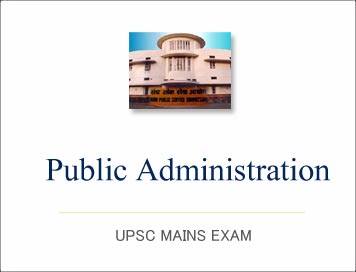Public Administration Mains 2017 : Solved Paper Question Paper-2 (Question-3)

Public Administration Mains 2017 : Solved Paper Question Paper-2 (Question-3)
(SECTION A)
Q3) a) “The position of council of ministers in a state is reduced to that of a body of a secretaries in the presence of a domineering of chief minister.” Critically analyse with examples (20) (State Government and Administration)
ANSWER : The Constitution provides that there shall be a Council of
Ministers with the Chief Minister at the head in a state to aid and advice the
Governor. The governor appoints the Chief Minister and further on his advice
appoints/dismisses other Ministers. The Chief Minister allocates or re-allocates
the portfolios and departments among the various ministers.
CM summons and presides over the meetings of the Council of Ministers and
monitor and coordinate their working. If there is any conflict of opinion
between the Chief Minister and any other minister, the latter has to resign. If
the Chief Minister resigns, the entire Council of Ministers is bound to resign.
It is clear from the above discussion that the position of council of ministers
in a state is reduced to that of a body of a secretaries in the presence of a
domineering of chief minister. In support of this claim the example of Chief
Ministership of Digvijay Singh in MP, Jayalalitha in TN and Mayawati in UP can
be quoted.
b) “Indianisation of Public Services is a slow but steady process.” Explain (20)( Evolution of Indian Administration)
ANSWER : India became independent in August 1947 and a new
Constitution was framed and adopted on January 26 1950 with India became a
republic. Britisher’s governed the country by establishing various institutions.
Though Indians were happy to get rid of the colonial rule it was soon realised
that the governmental system and administrative apparatus developed by the
Britisher’s was capable of meeting all the needs of the country therefore, the
same administrative system was maintained even after independence of course,
with some changes as per the requirements of the time.
The features of the British administrative system, like Central and state
administration, Civil Services, District and Regional administration, the
procedures of work, Rule of law, and Local government, etc. continue to be the
main points of the present Indian administrative system.
Sardar Patel was instrumental in the creation of the All India Administrative
Services which he described as the country’s “Steel Frame”. In his address to
the probationers of these services, he reminded them that the ICS was neither
Indian, nor civil, nor imbued with any spirit of service. He asked them to be
guided by the spirit of service in day-to-day administration.
